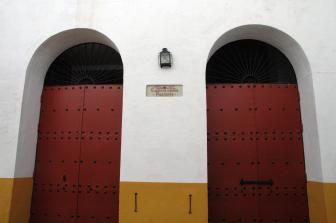Article
Poverty and new ideas

June 07, 2013
Speaking about the economy, let’s look at some aspects of hard hit Spain. First a little history lesson: Some 6-7 years ago it became clear that there were too many housing units in the country. Even for a population of 45 million there was a surplus of approx. 900.000 mostly new houses and apartments. Strangely enough prices were still going up as you may have imagined with a shortage. Price levels were set to the wishful thinking of foreign clients with ‘unlimited’ pensions and ‘local’ Yups from the big Spanish cities like Madrid, Barcelona, Seville, Valencia and Alicante. Developing and financing new ‘urbanizaciones’ was no problem. Banks jumped at the opportunity to loan, invest and participate in every construction scheme you could think of. Phase 1 under construction, only 15 % sold; meant that you could get 100% financing for phase 2 and so on. Big is beautiful.
And then the first crack in the mirror occurred.
The British pound lost substantially in the exchange rate, which almost wiped out the UK buyers market. But construction went on. Even the former president of the (US) Federal Reserve, Greenspan, warned in ‘El Pais’ for the oncoming disaster. Some 3 years ago employment in the construction business dried up. Unskilled labour was first to go; heavy equipment stood still and rental companies went belly-up. Paro which is Spanish for unemployment soared and the decentralized governments couldn’t cope with it, neither with manpower nor financially. So the strong family structure was the smokescreen behind which much sadness and economic disaster was played out. Banks were tottering under the burden of bad loans and suddenly refusing to continue their credit lines.
To cut a long, sad story short: a total of 4,5 million workers are laid off, which is 30 % overall, of those the young generation (18-35 yrs) more than 55% is out of work. Even in Europe, and reasonably educated, those people stand hardly a chance since they only speak Spanish; this being the heritage of an isolationist policy in which Spain focussed on other Spanish-speaking countries in South America. But the sun was warm, the people still friendly in the rural areas where they grow their own foodstuffs, tend their goats and chickens. And their adoration for poetry is still much alive; especially in Catalunya where they banned the corrida (bull fights).
So maybe if we stop eating beef in the Netherlands it will make us appreciate poetry more . . .
Hans Vermeyden writes about his travels in Spain, the Spanish economy, and what that (might) have to do with poetry.
Just arrived home after a 7-week stay in the south of Spain. Yes, the weather there was good. Only people with a vivid memory in Northern Europe will be able to remember what spring used to mean in our environment and tell their grandchildren about it. Sunscreen sellers in these parts will be the next victims of the economic crisis; who wants protection factor 50 that is frozen in the container?Speaking about the economy, let’s look at some aspects of hard hit Spain. First a little history lesson: Some 6-7 years ago it became clear that there were too many housing units in the country. Even for a population of 45 million there was a surplus of approx. 900.000 mostly new houses and apartments. Strangely enough prices were still going up as you may have imagined with a shortage. Price levels were set to the wishful thinking of foreign clients with ‘unlimited’ pensions and ‘local’ Yups from the big Spanish cities like Madrid, Barcelona, Seville, Valencia and Alicante. Developing and financing new ‘urbanizaciones’ was no problem. Banks jumped at the opportunity to loan, invest and participate in every construction scheme you could think of. Phase 1 under construction, only 15 % sold; meant that you could get 100% financing for phase 2 and so on. Big is beautiful.
And then the first crack in the mirror occurred.
The British pound lost substantially in the exchange rate, which almost wiped out the UK buyers market. But construction went on. Even the former president of the (US) Federal Reserve, Greenspan, warned in ‘El Pais’ for the oncoming disaster. Some 3 years ago employment in the construction business dried up. Unskilled labour was first to go; heavy equipment stood still and rental companies went belly-up. Paro which is Spanish for unemployment soared and the decentralized governments couldn’t cope with it, neither with manpower nor financially. So the strong family structure was the smokescreen behind which much sadness and economic disaster was played out. Banks were tottering under the burden of bad loans and suddenly refusing to continue their credit lines.
To cut a long, sad story short: a total of 4,5 million workers are laid off, which is 30 % overall, of those the young generation (18-35 yrs) more than 55% is out of work. Even in Europe, and reasonably educated, those people stand hardly a chance since they only speak Spanish; this being the heritage of an isolationist policy in which Spain focussed on other Spanish-speaking countries in South America. But the sun was warm, the people still friendly in the rural areas where they grow their own foodstuffs, tend their goats and chickens. And their adoration for poetry is still much alive; especially in Catalunya where they banned the corrida (bull fights).
So maybe if we stop eating beef in the Netherlands it will make us appreciate poetry more . . .
© Hans Vermeyden
Sponsors












Partners
LantarenVenster – Verhalenhuis Belvédère

